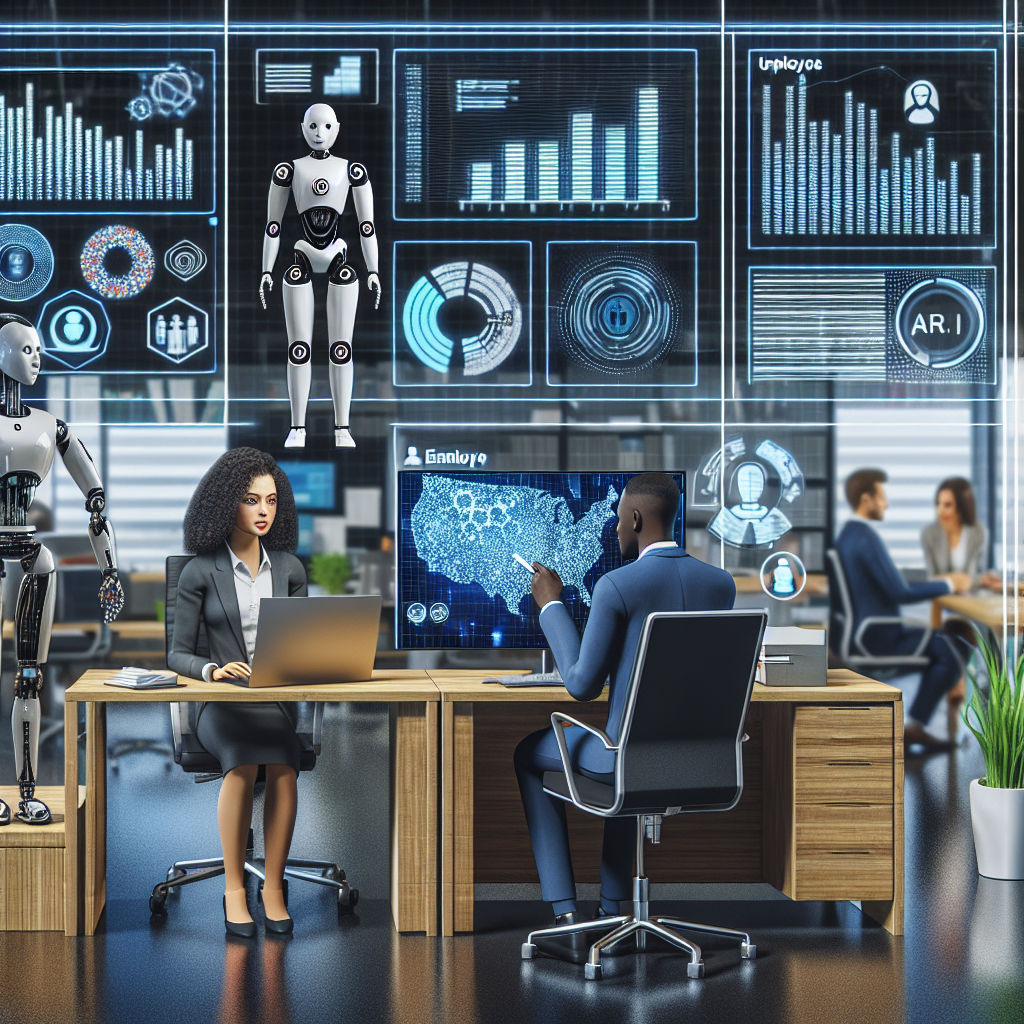In recent years, artificial intelligence (AI) has been rapidly transforming various industries, and human resources (HR) is no exception. AI automation in HR has revolutionized the way organizations manage their workforce, recruit new talent, and streamline their processes. From automating repetitive tasks to improving employee engagement, the benefits of AI automation in HR are numerous.
One of the key advantages of AI automation in HR is its ability to streamline and simplify administrative tasks. By automating routine processes such as payroll, benefits administration, and time tracking, HR professionals can free up time to focus on more strategic initiatives. This not only increases efficiency and productivity but also reduces the risk of human error.
AI automation also plays a crucial role in recruitment and talent acquisition. By utilizing AI-powered tools such as resume screening software, chatbots, and predictive analytics, organizations can identify and attract top talent more effectively. These tools can help HR professionals sift through large volumes of resumes, assess candidates’ skills and qualifications, and even conduct initial interviews. This not only saves time and resources but also ensures a more streamlined and unbiased recruitment process.
Furthermore, AI automation in HR can help improve employee engagement and retention. By analyzing data on employee performance, satisfaction, and turnover rates, AI can identify trends and patterns that may indicate potential issues within the organization. This allows HR professionals to proactively address issues such as low employee morale, high turnover rates, or skills gaps before they become major problems. Additionally, AI-powered tools such as personalized learning platforms and performance management systems can help employees develop their skills, set goals, and receive feedback in real-time, leading to increased job satisfaction and productivity.
Another significant benefit of AI automation in HR is its ability to enhance decision-making. By analyzing data from various sources, such as employee surveys, performance evaluations, and market trends, AI can provide valuable insights that can help HR professionals make more informed decisions. For example, predictive analytics can forecast future workforce needs, identify potential areas for improvement, and even predict which employees are at risk of leaving the organization. This allows HR professionals to develop proactive strategies and interventions to address these issues before they escalate.
In addition to improving efficiency, recruitment, employee engagement, and decision-making, AI automation in HR can also help organizations comply with regulatory requirements and mitigate risks. By ensuring that HR processes are standardized, transparent, and compliant with relevant laws and regulations, AI can help organizations avoid costly penalties and legal disputes. For example, AI-powered tools can help automate compliance training, monitor employee behavior for signs of misconduct, and ensure that sensitive data is handled securely and in accordance with privacy laws.
Despite the numerous benefits of AI automation in HR, some concerns and challenges remain. For example, there are concerns about the potential impact of AI on job security and the role of HR professionals. While AI automation can streamline processes and improve efficiency, it cannot replace the human element in HR, such as empathy, creativity, and strategic thinking. HR professionals will still play a crucial role in developing and implementing HR strategies, managing employee relations, and fostering a positive organizational culture.
Another challenge is the potential for bias and discrimination in AI algorithms. If not properly designed and monitored, AI-powered tools can inadvertently perpetuate biases in recruitment, performance evaluations, and decision-making. To mitigate this risk, organizations must ensure that AI algorithms are transparent, accountable, and regularly audited to identify and address any biases or inaccuracies.
Overall, the benefits of AI automation in HR far outweigh the challenges. By leveraging AI-powered tools and technologies, organizations can improve efficiency, recruitment, employee engagement, decision-making, compliance, and risk management. As AI continues to advance and evolve, HR professionals must embrace these technologies and adapt their skills and practices to remain competitive and relevant in the digital age.
FAQs
Q: Will AI automation in HR replace human employees?
A: While AI automation can streamline processes and improve efficiency, it cannot replace the human element in HR. HR professionals will still play a crucial role in developing and implementing HR strategies, managing employee relations, and fostering a positive organizational culture.
Q: How can organizations ensure that AI algorithms are unbiased and fair?
A: To mitigate the risk of bias and discrimination in AI algorithms, organizations must ensure that algorithms are transparent, accountable, and regularly audited to identify and address any biases or inaccuracies. Additionally, organizations should provide training and education to HR professionals on how to use AI tools responsibly and ethically.
Q: What are some examples of AI-powered tools in HR?
A: Some examples of AI-powered tools in HR include resume screening software, chatbots for recruitment, predictive analytics for workforce planning, personalized learning platforms, and performance management systems.
Q: How can AI automation in HR help improve employee engagement?
A: AI automation in HR can help improve employee engagement by analyzing data on employee performance, satisfaction, and turnover rates to identify trends and patterns that may indicate potential issues within the organization. Additionally, AI-powered tools such as personalized learning platforms and performance management systems can help employees develop their skills, set goals, and receive feedback in real-time, leading to increased job satisfaction and productivity.

